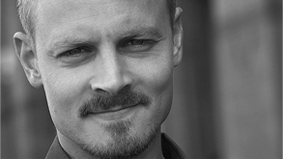"Institutions will try to preserve the problem to which they are the solution" Clay Shirky
I saw Sir Ken Robinson speak last year in London. It was without exception the best talk I’ve ever been to. Witty, erudite, fun, insightful and hugely compelling. A version of it has just been posted as a TED talk in which Sir Ken asserts the need to move away from an industrial, manufacturing model of education based on linearity, conformity and ‘batching’ people (sound familiar?), toward a model which is based more on principles of agriculture that sees human flourishing as an organic rather than mechanical process. You cannot predict the outcome of human development, says Sir Ken, all you can do is create the conditions under which it will flourish.
Image courtesy
Which reminded me of this typically erudite post by JP Rangaswami on the desire for predictability in business. Quoting from The Power of Pull, he lists a number of beliefs and assumptions (what I might call Toxic Assumptions) that make up ‘the philosophy of push’. Principles that have been the basis of management and economics thinking for the best part of a century:
- There’s not enough to go around
- Elites do the deciding
- Organisations must be hierarchical
- People must be molded
- Bigger is better
- Resources can be allocated centrally
- Demand can be forecast
- Demand can be met
It is these last two that are particularly interesting since "institutions, particularly ‘push’ institutions, have grown up on the mother’s milk of predictability, of smoothed-out forecasts, of a level of precision that is no longer sustainable in a ‘pull’ world." So organisations go to exceptional lengths to turn things that are fundamentally unpredictable into something that is somehow more predictable, beginning with attempts to control the market (have a monopoly), and if that’s not possible to control the customer, and if that’s not possible to at least convince themselves that they have predictability (through habit, ritual and process), and as a last resort to try to convince others of predictability whilst not being convinced themselves.
And inevitably this leads to the ‘planning horizon problem‘. The incredible levels of precision in planning and outcome increasingly demanded by business militate against any concept of agility. A quality that I feel has never been more important in business and communication process. Sir Ken points out that real change is not about scaling a new solution born of the same thinking, its about creating a movement in which people create their own solutions but with external support. This theme of facilitation as opposed to destination is a point I believe many companies still miss. As Nassim Nicholas Taleb said: ‘Make an omelette with the broken eggs’.
Original Post: http://neilperkin.typepad.com/only_dead_fish/2010/05/from-linear-to-organic.html




